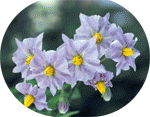| Abstract Detail
Coffee Genomics - Morning Maluf, Mirian Perez [1]. Potential impacts of coffee genomics in coffee breeding. UNTIL present coffee breeding programs have been employing traditional genetic techniques for crossing and selection of desirable cultivars. Although a significant amount of coffee cultivars was developed through classical breeding approach, factors such as limited genetic variability of Coffea species, low rate of interspecific crosses, long life cycle, represent a bottleneck for the development of novel cultivars. Recently, with the completion of large-scale sequencing projects of the two most important Coffea species, genomic resources will be rapidly incorporated by breeding programs, and will represent a tool to overcome those limitations. The immediate contribution of genomic is the possibility to identify reliable and stable markers that would be used for assisted selection of specific genotypes. Strategies under implementation include search for polimorphisms in candidate genes, selection of molecular markers associated with agronomic traits, and also characterization of differential expression of candidate genes, at diverse developmental stages and environmental situations. Genes exhibiting differential expression, once evaluated in adequate progenies would represent powerful candidates for in vitro transfer to selected lines. The identification of promoters with tissues specificity, another genomic resource, would also be essential for future development of OGM cultivars. However, although the potential of genomics for coffee breeding is extensive and increasing, field experience demonstrates that most of the desirable agronomic characteristics of coffee cultivars, such as cup quality, productivity, are mainly influenced by environmental conditions and pos-harvest practices. Therefore, once the genetic gain is limited, strategies relying largely on genomics and transformation should be careful planned, in order to avoid waste of resources. An ideal situation would be the continuous association of classical breeding methods with genomics tools for selection of new genotypes.
Log in to add this item to your schedule
1 - Embrapa / IAC, Coffee Center \"Alcides Carvalho\", Av. Barão de Itapura, 1481, Guanabara, Campinas, SP, 13001-970, Brazil
Keywords:
Molecular markers
functional genomics
promoter
coffee.
Session: SAT01-10
Location: Hall of Ideas Room G/Monona Terrace
Date: Wednesday, July 26th, 2006
Time: 10:20 AM
Abstract ID:83 |
